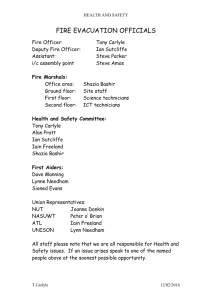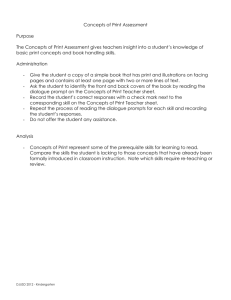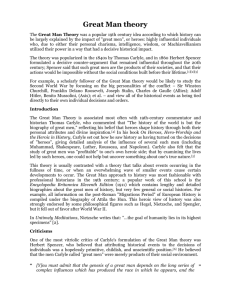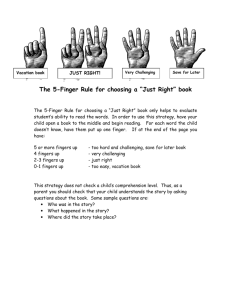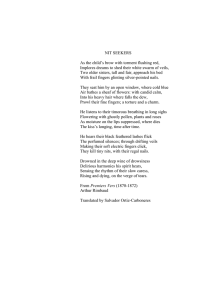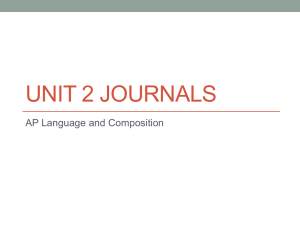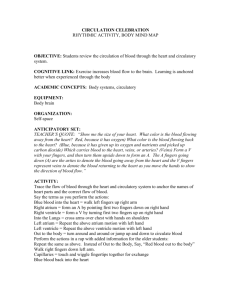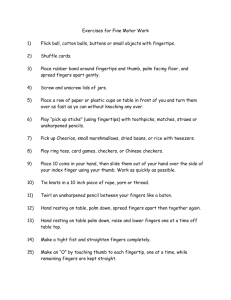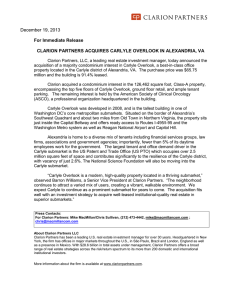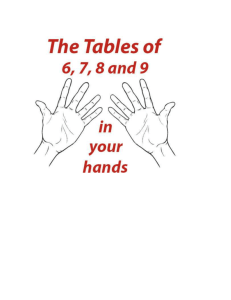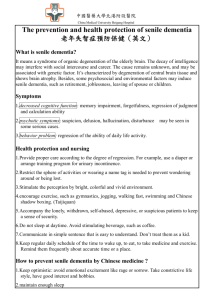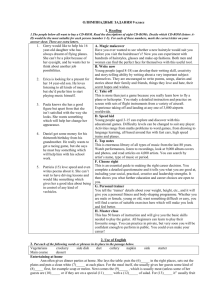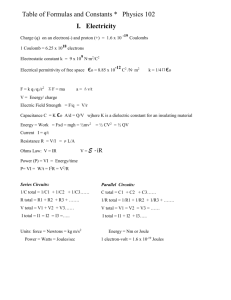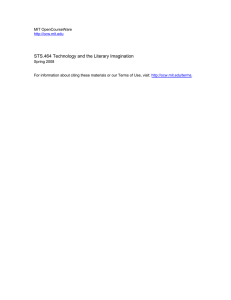213 KB
advertisement
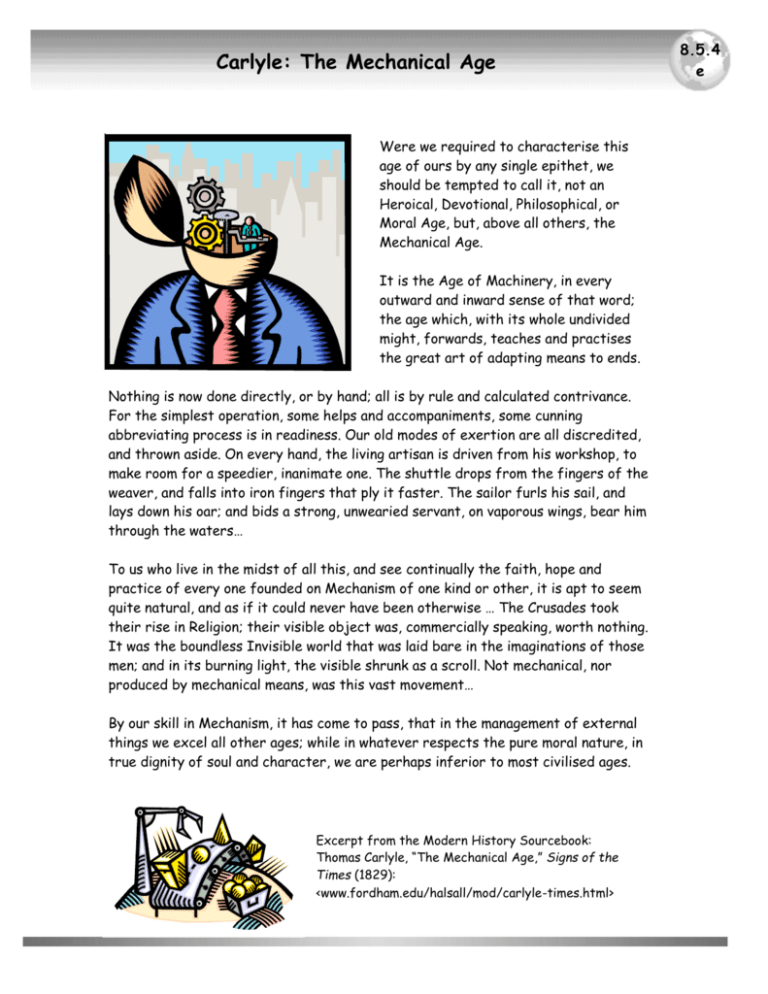
Carlyle: The Mechanical Age Were we required to characterise this age of ours by any single epithet, we should be tempted to call it, not an Heroical, Devotional, Philosophical, or Moral Age, but, above all others, the Mechanical Age. It is the Age of Machinery, in every outward and inward sense of that word; the age which, with its whole undivided might, forwards, teaches and practises the great art of adapting means to ends. Nothing is now done directly, or by hand; all is by rule and calculated contrivance. For the simplest operation, some helps and accompaniments, some cunning abbreviating process is in readiness. Our old modes of exertion are all discredited, and thrown aside. On every hand, the living artisan is driven from his workshop, to make room for a speedier, inanimate one. The shuttle drops from the fingers of the weaver, and falls into iron fingers that ply it faster. The sailor furls his sail, and lays down his oar; and bids a strong, unwearied servant, on vaporous wings, bear him through the waters… To us who live in the midst of all this, and see continually the faith, hope and practice of every one founded on Mechanism of one kind or other, it is apt to seem quite natural, and as if it could never have been otherwise … The Crusades took their rise in Religion; their visible object was, commercially speaking, worth nothing. It was the boundless Invisible world that was laid bare in the imaginations of those men; and in its burning light, the visible shrunk as a scroll. Not mechanical, nor produced by mechanical means, was this vast movement… By our skill in Mechanism, it has come to pass, that in the management of external things we excel all other ages; while in whatever respects the pure moral nature, in true dignity of soul and character, we are perhaps inferior to most civilised ages. Excerpt from the Modern History Sourcebook: Thomas Carlyle, “The Mechanical Age,” Signs of the Times (1829): <www.fordham.edu/halsall/mod/carlyle-times.html> 8.5.4 e
